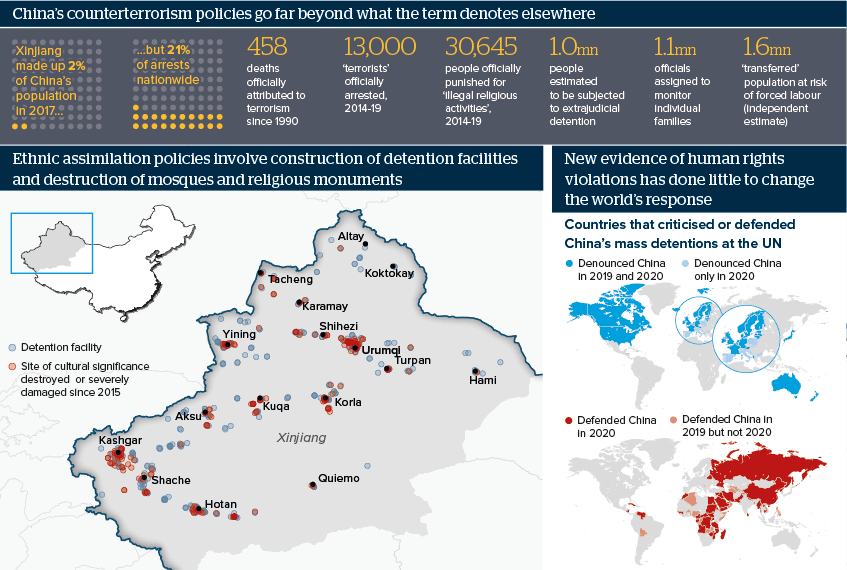China’s policies aim to erase Uighur culture
China describes its repression in Xinjiang as a campaign against terrorism, separatism and religious extremism
Source: State Council of China; The New York Times; Australian Strategic Policy Institute; The Jamestown Foundation; Axios; Global Times
Outlook
Beijing describes its repression in Xinjiang as a campaign against terrorism, separatism and religious extremism, and may well believe this. It appears to see these ‘evils’ as inherent in Uighur ethnic identity itself.
The policies that this diagnosis inform appear to aim at the near-total elimination of the Uighurs’ traditional ethnic identity and sense of connection with their ancestral homeland.
This policy response appears disproportionate from the perspective liberal democratic values, but Beijing has no ideological qualms about repression and is restrained in its use only by its own assessment of what is feasible and effective in pursuing its goals.
Impacts
- Western sanctions and criticism are growing, but will not even approach a severity that would force Beijing to make significant concessions.
- International inaction on China’s policies in Xinjiang is not necessarily a result of Chinese influence alone.
- Many governments share Beijing’s fears of terrorism, separatism and religious extremism and do not view violent repression as illegitimate.
- Self-identified Muslim governments by definition disapprove of the Chinese government’s atheism, but not necessarily of its brutal methods.
